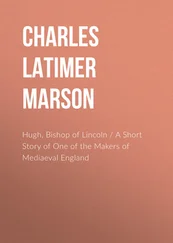Paul Vinogradoff - Villainage in England - Essays in English Mediaeval History
Здесь есть возможность читать онлайн «Paul Vinogradoff - Villainage in England - Essays in English Mediaeval History» — ознакомительный отрывок электронной книги совершенно бесплатно, а после прочтения отрывка купить полную версию. В некоторых случаях можно слушать аудио, скачать через торрент в формате fb2 и присутствует краткое содержание. Жанр: foreign_prose, Юриспруденция, История, foreign_edu, foreign_antique, на английском языке. Описание произведения, (предисловие) а так же отзывы посетителей доступны на портале библиотеки ЛибКат.
- Название:Villainage in England: Essays in English Mediaeval History
- Автор:
- Жанр:
- Год:неизвестен
- ISBN:нет данных
- Рейтинг книги:4 / 5. Голосов: 1
-
Избранное:Добавить в избранное
- Отзывы:
-
Ваша оценка:
- 80
- 1
- 2
- 3
- 4
- 5
Villainage in England: Essays in English Mediaeval History: краткое содержание, описание и аннотация
Предлагаем к чтению аннотацию, описание, краткое содержание или предисловие (зависит от того, что написал сам автор книги «Villainage in England: Essays in English Mediaeval History»). Если вы не нашли необходимую информацию о книге — напишите в комментариях, мы постараемся отыскать её.
Villainage in England: Essays in English Mediaeval History — читать онлайн ознакомительный отрывок
Ниже представлен текст книги, разбитый по страницам. Система сохранения места последней прочитанной страницы, позволяет с удобством читать онлайн бесплатно книгу «Villainage in England: Essays in English Mediaeval History», без необходимости каждый раз заново искать на чём Вы остановились. Поставьте закладку, и сможете в любой момент перейти на страницу, на которой закончили чтение.
Интервал:
Закладка:
Another Saxon term— gebúr —has left its trace in the burus and buriman of Norman records. The word does not occur very often, and seems to have been applied in two different ways—to the chief villains of the township in some places, and to the smaller tenantry, apparently in confusion with the Norman bordarius , in some other 271 271 Glastonbury Inquis. 105: 'Ernaldus buriman dimidiam virgatam, Iohannes burimannus dimidiam virgatam.' Cf. Custumal of Bleadon, p. 189; Cartulary of Shaftesbury, Harl. MSS. 61, f. 45.
. The very possibility of such a confusion shows that it was going out of common use. On the other hand, the Danish equivalent bondus is widely spread. It is to be found constantly in the Danish counties 272 272 It is to be found sometimes out of the Danish shires, e.g. in Oxfordshire. Rot. Hundred. ii. 842, b: 'Bondagium: Johannes Bonefaunt tenet unam virgatam terre de eodem Roberto … reddit … 11 sol. pro omni servicio et scutagium quando currit 20 d.' Of course there were isolated Danish settlements outside the Denelaw.
. The original meaning is that of cultivator or 'husband'—the same in fact as that of gebúr and boor. Feudal records give curious testimony of the way in which the word slid down into the 'bondage' of the present day. We see it wavering, as it were, sometimes exchanging with servus and villanus , and sometimes opposed to them 273 273 Rot. Hundred. ii. 486, a: 'Tenentes Alicie la Blunde. Bondi , A. habet in eadem villa 2 villanos, quorum quilibet tenet mesuagium cum 30 a. Id. Al. hab. 1 bondum qui ten. 20 a. Custumarii , Id. Al. habet 1 villanum, qui tenet 1 mes. cum 44 a.' Rot. Hundred. ii. 486, a: 'De W. le Blunde. Villani , R. de Badburnham. Bondi cotarii. ' Cf. Ibid. 422, b; 423, a: 'Libere tenentes … Custumarii … Bondi.'
. Another word of kindred meaning, chiefly found in eastern districts, is landsettus , with the corresponding term for the tenure 274 274 Ramsey Inquisitions, Galba, E. x. 34: 'W.L. tenet in landsetagio 12 a. pro 9 den. et ob. R. 24 a. de landsetagio et 12 a. de novo.' Cartulary of Ramsey (Rolls Series), i. 426: 'G.C. dat dim. marcam ut K. filius suus fiat heusebonde de 6 a. terrae de lancetagio.' Registr. Cellararii of Bury St. Edmund's, Cambridge University, Gg. iv. 4, f. 400, b: '9 acre unde 4 a. fuerunt libere et 5 lancettagii.' Cartulary of Ramsey (Rolls Series), i. 425: 'S. Cl. recognovit, quod 24 a., quas tenet, sunt in lanceagio dom. Abbatis salvo corpore suo et quod faciet omnes consuetudines serviles … lancectus nacione .'
; this of course according to its etymology simply means an occupier, a man sitting on land.
Terms to indicate the nature of services.
Several terms are found which have regard to the nature of services. Agricultural work was the most common and burdensome expression of economical subjection. Peasants who have to perform such services in kind instead of paying rents for them are called operarii 275 275 Domesday of St. Paul's, 17: 'Item omnes operarii dimidiae virgatae debent invenire vasa et utensilia ter in anno ad braciandum.' Cf. 28.
. Another designation which may be found everywhere is consuetudinarii or custumarii 276 276 Rot. Hundred. ii. 422, 423. Cf. 507, a: 'Libere tenentes … Nicholaus Trumpe 3 a. terre cum mesuagio et red. per ann. 20 d. Custumarii … Nicholaus Trumpe ten. 1 a. terre et redd. 2 sol.'
. It points to customary services, which the people were bound to perform. When such tenants are opposed to the villains, they are probably free men holding in villainage by customary work 277 277 Exch. Q.R. Misc. Alien Priories, 2/2. (Chilteham): '… Redditus villanorum de 126 villanis 41 libre, 14 s. 11 d. Item sunt 70 custumarii qui debent arare bis per annum cum 17 carucis.... Item sunt 25 villani qui debent herciare quilibet eorum per 2 dies,' etc.
. As the name does not give any indication as to the importance of the holding a qualification is sometimes added to it, which determines the size of the tenement 278 278 Cartulary of St. Peter of Gloucester (Rolls Series), iii. 203: 'Omnes consuetudinarii majores habebunt tempore falcationis prati unum multonem, farinam, et salem ad potagium. Et minores consuetudinarii habebunt quilibet eorum 1 panem et omnes 1 caseum in communi, unam acr. frumenti pejoris campi de dominico et unum carcasium multonis, et unum panem ad Natale.'
.
In many manors we find a group of tenants, possessed of small plots of land for the service of following the demesne ploughs. These are called akermanni or carucarii 279 279 Cartulary of Malmesbury (Rolls Series), i. 154, 155. Cf. i. 186, 187. Cartulary of St. Mary of Worcester (Camden Society), 43, b; Rot. Hundred. ii. 775, b.
, are mostly selected among the customary holders, and enjoy an immunity from ordinary work as long as they have to perform their special duty 280 280 Rot. Hundred ii. 602, a. Cf. Exch. Q.R. Alien Priories, 2/2: 'Item sunt in eadem villata de Wardeboys 6 dimidias virgatas—que vocantur Akermannelondes, quorum W.L. tenet ½ virgatam pro qua ibit ad carucam Abbatis si placeat abbati vel dabit sicut illi qui tenent 6 Maltlondes preter 15 d.' Rot. Hundred, i. 208: 'Utrum akermanni debent servicium suum vel servicii redempcionem.'
. On some occasions the records mention gersumarii , that is peasants who pay a gersuma , a fine for marrying their daughters 281 281 Registr. Cellararii of Bury St. Edmund's, Cambridge University, Gg. iv. 4, f. 26: 'Gersumarii (Custumarii).... Gersuma pro filia sua maritanda.' Ibid. 108, b: 'Tenentes 15 acrarum custumarii—omnes sunt gersumarii ad voluntatem domini.' Cartulary of Bury St. Edmund's, Harl. MSS. 3977, f. 87, d: 'Nichol. G gersumarius tenet 30 a. pro 8 sol. que solent esse custumarie.' I may add on the authority of Mr. F. York Powell that landsettus (land-seti), as well as akermannus (aker-maðr) and gersuma (görsemi), are certainly Danish loan-words, which accounts for their occurrence in Danish districts.
. This payment being considered as the badge of personal serfdom, the class must have consisted of men personally unfree.
Terms to indicate the size of the holding.
Those names remain to be noticed which reflect the size of the holding. In one of the manors belonging to St. Paul's Cathedral in London we find hidarii 282 282 Hale, Introduction to the Domesday of St. Paul's, xxv: 'If we compare the services due from the Hidarii with those of the libere tenentes on other manors, it will be evident, that the Hidarii of Adulvesnasa belonged to the ordinary class of villani, their distinction being probably only this, that they were jointly, as well as severally, bound to perform the services due from the hide of which they held part.'
. This does not mean that every tenant held a whole hide. On the contrary, they have each only a part of the hide, but their plots are reckoned up into hides, and the services due from the whole hide are stated. Virgatarius 283 283 Eynsham Inquest, 49, a: 'Summa (prati) xvi a. et iv perticas que dimidebantur xi virgatariis et rectori ut uni eorum et quia jam supersunt tantummodo 4 virgatarii et rector, dominus habet in manu sua 7 porciones dicti prati.'
is of very common occurrence, because the virgate was considered as the normal holding of a peasant. It is curious that in consequence the virgate is sometimes called simply terra , and holders of virgates— yerdlings 284 284 Cartulary of Battle, Augmentation Office, Miscell. Books, 57, f. 35, s: 'Yherdlinges … custumarii.' Ibid. 42, b: 'Majores Erdlinges scil. virgarii. Halferdlinges (majores cottarii) Minores cottarii.'
. Peasants possessed of half virgates are halfyerdlings accordingly. The expressions 'a full villain 285 285 Black Book of Peterborough, 164: 'In Scotere et in Scaletorp—24 plenarii villani et 2 dimidii villani—Plenarii villani operantur 2 diebus in ebdomada.'
' and 'half a villain' must be understood in the same sense. They have nothing to do with rank, but aim merely at the size of the farm and the quantity of services and rents. Ferlingseti are to be met with now and then in connexion with the ferling or ferdel , the fourth part of a virgate 286 286 Glastonbury Inqu. (Roxburghe Series), 23: 'Operatur ut alii ferlingseti.'
.
Интервал:
Закладка:
Похожие книги на «Villainage in England: Essays in English Mediaeval History»
Представляем Вашему вниманию похожие книги на «Villainage in England: Essays in English Mediaeval History» списком для выбора. Мы отобрали схожую по названию и смыслу литературу в надежде предоставить читателям больше вариантов отыскать новые, интересные, ещё непрочитанные произведения.
Обсуждение, отзывы о книге «Villainage in England: Essays in English Mediaeval History» и просто собственные мнения читателей. Оставьте ваши комментарии, напишите, что Вы думаете о произведении, его смысле или главных героях. Укажите что конкретно понравилось, а что нет, и почему Вы так считаете.












